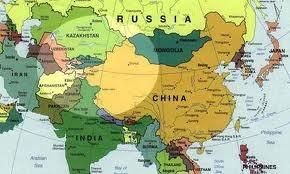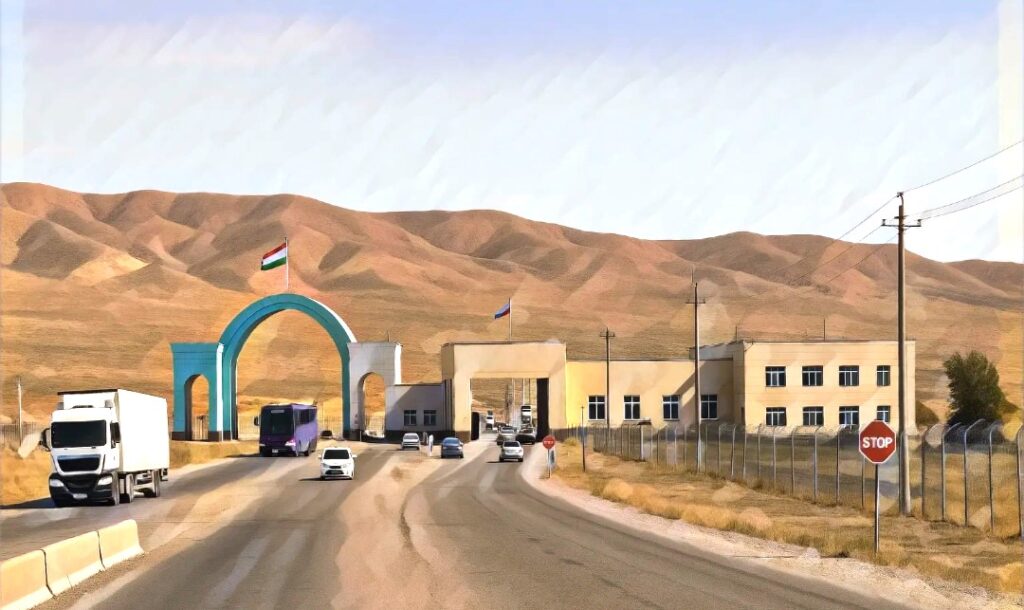BISHKEK (TCA) — The Times of Central Asia presents to its readers Stratfor’s Global Intelligence, a weekly review of the most important events that happened in the world — from Europe to Middle East to Russia to Central Asia to Afghanistan to China and the Americas.
The Week That Was
Strange Developments in Iran
Something stinks in Tehran. We noted last week the big divergence between the Nowruz holiday messages released by Iranian President Hassan Rouhani and Iranian Supreme Leader Ayatollah Ali Khamenei, who tried to undermine Rouhani’s economic liberalization agenda by stressing the virtues of the resistance economy instead. This is a political divide that will only continue to widen as Iran engages with the West. Hardline factions, including the Islamic Revolutionary Guard Corps, will try to compensate for election setbacks by asserting power by other means (ballistic missile tests, for example). They will be fully aware that such actions will sour the foreign investment climate in the Islamic Republic.
The supreme leader sent another strong signal early this week by lambasting Iranian officials who believe that diplomacy somehow overshadows Iran’s military capabilities, arguing that negotiations are only possible if they are done from a position of strength. Khamenei’s comments appeared to be directed at moderate former President Ali Akbar Hashemi Rafsanjani, whose Twitter account posted a correction to a tweet from a week ago on the issue of diplomacy and missiles. According to the revised tweet, Rafsanjani meant to say “Tomorrow’s world is a world of dialogue like the Islamic Revolution, and not one of intercontinental ballistic missiles and nuclear bombs.” Rafsanjani apparently felt the pressure to nuance his words following the supreme leader’s rebuke.
But that is not even the weirdest part. Rouhani was scheduled this week to travel to Baghdad and then to Austria. He cancelled the Baghdad trip citing security concerns. This was somewhat plausible: anti-government protests were picking up in Baghdad. Then, however, at the very last minute he also cancelled the trip to Austria, standing up the 100 Iranian businessmen that already arrived in Vienna to strike deals during the economic forum. Security reasons were also cited for the cancelled Austrian visit, and the media speculated that Rouhani backed out after Austrian authorities refused to shut down protests by exiled Iranian opposition and human rights groups. But such protests have not stopped Rouhani from traveling to Western capitals in the past. We suspect that Rouhani’s sudden change in travel plans may have been linked to the intensifying power struggle at home. Although unconfirmed, we picked up a piece of information from a source claiming that Rouhani faced a security threat as he was on his way to boarding his plane in Iran, resulting in the last-minute cancellation. If the power competition in Iran has intensified to the point that Rouhani’s life may be threatened, then the race ahead of 2017 Iranian presidential elections is about to get a whole lot more interesting.
Fresh U.S.-NATO Commitments
Washington sought to reassure its European allies this week by announcing that a third U.S. armored brigade will be sent to Eastern Europe as part of Operation Atlantic Resolve. Poland and the Baltics welcomed the news while Russia vowed once again an asymmetrical response. It is important to note that this is still an incremental step by the United States. Even as recently as 2012, the United States had four brigades, roughly 10,000 more than what the United States is planning for its 2017 increase. As a recent war simulation by RAND Corp. exposed, at least seven NATO brigades would be required to slow a Russian offensive in the Baltics. In the lead-up to the July NATO summit, we will need to see just how far the alliance is willing to go at this point in building up that presence. The troop increases in Europe tend to attract the most intention, but no less important are the U.S. efforts to reinforce its naval access to the theater. The United States is negotiating with Iceland to reopen U.S. Naval Air Station Keflavik, which will be critical to mitigating a potential interdiction threat from Russian submarines passing through the GIUK gap, a maritime chokepoint between Greenland, Iceland and the United Kingdom that the United States would rely on to reinforce Europe.
Russian Nuclear Non-Cooperation
Even as we see the United States and Russia in closer dialogue on Syria and Ukraine, there are plenty signs that the broader standoff will escalate. According to Pentagon sources reporting to the Washington Free Beacon, a recent intelligence assessment on the Russian strategic nuclear warhead inventory has shown it to be increasing, while Russian officials have reportedly sought to impede U.S. inspections allowed under the 2010 New START treaty. This has raised further concerns amongst some current and former Pentagon officials that the Russians will not have reduced their total deployable strategic warhead inventory to 1,550 warheads by February 2018 as mandated by New START. New START is not the only nuclear treaty with Russia that the United States is concerned about. Washington has also accused Moscow of not fully honoring the Intermediate-Range Nuclear Forces (INF) treaty. As Russia seeks to maintain a comprehensive deterrence capability against NATO and a rising China, the motivation will grow for them to break from previous nuclear arms control treaties.
Libya’s New Government Moves in
Get ready for more action in Libya. Libyan Prime Minister Fayez al-Sarraj and most of the presidential council representing the U.N.-backed unity government have finally succeeded in making the move back to the Libyan capital of Tripoli despite threats from the militias that have held the city since August 2014. Sarraj’s arrival will set into motion his call for international support in fighting the Islamic State in Libya. We expect Western backers to carry out more air strikes and expand their support to the unity government’s militias through training and special forces assistance.
Some of the powerful Misratan militias will also begin to organize a push southwards towards Sirte, the Islamic State stronghold in central Libya. While there is momentum behind the unity government in Tripoli, it has not yet gotten the endorsement of the Tobruk-based government in eastern Libya. That means the country’s fight against jihadists will continue to be fragmented among various militias. This will be a headache for foreign backers in Europe and the United States behind the anti-Islamic State mission, but they already appear have adopted a strategy of working with multiple and competing nodes of power. Foreign backers will continue to support the strongest military actor in Western Libya, the Libyan National Army under General Khalifa Hifter who remains deeply focused on Benghazi and Derna. Even as the Islamic State threat is compelling various factions to work together, the deeper divisions are bound to resurface again.
Spreading Saudi Wealth
Saudi Arabian Deputy Crown Prince Mohammed bin Salman gave more indications in a Bloomberg interview of the options Riyadh is considering for its planned initial public offering of parts of Saudi Arabia’s assets. One of the more interesting plans under consideration is to sell a small amount of shares of the parent company — including upstream assets — on the local stock exchange by 2017 or 2018 at the latest. The percent of Saudi Arabian Oil Co. (Aramco) that would be offered would be a small amount, under five percent, but it also would allow for a valuation of the entire company.
This is important because they are also planning to move the rest of the company under its emerging sovereign wealth fund, the Public Investment Fund. Saudi Arabia has historically stored most of its money in safe foreign securities (roughly two-thirds are in U.S. treasury bonds). This stands in stark contrasts to their Gulf counterparts who have funneled their money into sovereign wealth funds that are used as investment vehicles. Riyadh now wants to move into risker, potentially more lucrative assets with its Public Investment Fund, noting that many assets are cheap today and that it is playing a long-term investment strategy. Most recently we have seen the Public Investment Fund look at $10 billion in investments into Russia and a $1 billion stake into South Korean conglomerate POSCO. In time, Saudi Arabia hopes that the Public Investment Fund will become a multi-trillion dollar investment fund, with Saudi Aramco forming the backbone.
Brazilian Impeachment Process Drags on
The threat of impeachment against Brazilian President Dilma Rousseff has risen considerably following a decision by the Brazilian Democratic Movement Party (PMDB) to ditch the ruling party’s coalition. To thwart an impeachment vote in the lower house, where the PMDB has the most seats, Rousseff now has to haggle for votes from undecided lawmakers. A key player to watch is Vice President Michel Temer, the leader of the PMDB, who appears to be angling for the presidency despite facing corruption allegations himself. Temer is trying to convince fellow lawmakers that the anti-corruption probe led by federal police has gone too far and threatens to destroy the state. Temer is trying to position himself as the best replacement for Rousseff to regain control over the federal police through careful appointments to the justice and finance ministries. Apparently, the corruption of the system has become so pervasive that a likely corrupt politician has to stand up to the challenge of stopping the forces fighting that corruption in the first place in the name of saving the country.
New Peace Process in Colombia
In Colombia, the National Liberation Army (ELN) agreed March 30 to enter formal negotiations toward a peace agreement with the government. The ELN had held off on negotiations because of a major split within the group, but it was logical for the ELN to try to piggyback off the deal with its larger counterpart, the Revolutionary Armed Forces of Colombia (FARC). A successful ELN negotiation — as well as a resolution to the ongoing FARC talks — would significantly reduce politically motivated violence in Colombia, even as pockets of criminal violence would remain.
But a possible disruptor to a FARC and ELN peace agreement has emerged as well. The Clan Usuga, Colombia’s largest criminal group, which emerged from rightist paramilitary organizations that demobilized more than ten years ago, successfully disrupted trade and transport across northern Colombia as a show of strength. The group blocked roads and closed businesses across swathes of Antioquia, Choco, Cordoba, and Norte de Santander. Although the Clan Usuga only has a few thousand members, it could pose a risk for the peace negotiations, as militants are unlikely to demobilize completely and surrender their arms if they feel a threat from Clan Usuga units still active. The FARC has explicitly mentioned remaining paramilitaries as a barrier to its demobilization. The government is likely to shift military attention toward targeting the Clan Usuga, both to disrupt the direct threat from the group and to potentially aid the FARC in demobilizing without fear of retribution from the group.
Full Articles
Britain’s Deficit Weighs Down the Pound
The British pound has been on a downward slide since January, a departure from the currency’s relatively strong growth over the past few years. The markets have been gradually accounting for the risk posed by the United Kingdom’s potential departure from the European Union, which was detailed in a Goldman Sachs report released in February. According to the U.S. investment banking firm, a vote in favor of exiting the bloc in the United Kingdom’s June referendum would immediately send the value of the pound plunging by about 20 percent. The sudden, steep drop would in turn cause serious problems for the United Kingdom, which would find it more difficult to pay for the imports upon which the country is so reliant.
Though Stratfor does not expect the United Kingdom to leave the European Union, and therefore does not predict Goldman Sachs’ scenario will come to pass, the report highlights an important weakness in the British economy: an extremely high current account deficit. Because of the deficit, the pound will likely continue to fall even after British voters vote to stay in the European Union, with the exception of a temporary recovery in the immediate aftermath of the referendum. Over time, the floundering currency will drag the purchasing power of the average British consumer down with it.
A Subtle Manipulation of Russian Elections
With Russian parliamentary elections on the horizon, the Kremlin is already making plans to ensure that the ruling United Russia party stays in power. Party leaders are anxious to avoid a repeat of the 2011 elections, when mass protests swept the country after the government manipulated election results. This year, instead of altering the vote after polls close, the Kremlin is looking to shape the vote before they even open.
Another Rebel Group Takes Steps Toward Peace in Colombia
On March 30, the National Liberation Army (ELN), Colombia’s the second-largest leftist militant group, formally opened peace negotiations with the Colombian government. The formal talks, which will take place in Ecuador, cap a three-year process of preliminary negotiation and became possible when a faction of the ELN, the Domingo Lain Front, agreed to take part. If the talks are successful, political violence in Colombia should wane, but some risks from future criminal activity will remain.
Al Qaeda’s North African Franchise Pushes South
A string of unusual attacks by al Qaeda’s North African branch could shed some light on the jihadist group’s latest predicament. Pressure is mounting on al Qaeda in the Islamic Maghreb (AQIM) to counter the Islamic State’s growing encroachment on its territory, resources and pool of recruits. The rise of an effective rival for the helm of global jihadism has forced al Qaeda to step up its game, especially in areas where it has been weakened. Northern Africa — and particularly Mali, where France’s military intervention has significantly degraded AQIM’s capabilities over the past few years — is one such place.
The reversal of AQIM’s fortunes by both the Islamic State and France may be the motive behind the group’s latest escalation of attacks against soft targets in African cities. Since the beginning of 2016, AQIM has launched several assaults on hotels located well outside its traditional area of operations, including the Hotel Splendid in Burkina Faso and the Grand Bassam resort in Ivory Coast. As the group strives to remain relevant in the face of numerous threats to its position in the region, it will likely continue to ramp up its attacks against Western targets in countries that lack the security resources to defend them.
Adding New Layers to 3-D Printing
The world is in the early stages of another industrial revolution, one that could reverse some aspects of globalization. Additive manufacturing, more commonly known as 3-D printing, as well as intelligent industrial robotics and other software-based manufacturing technologies, are reducing the advantage of low labor costs. Eventually, they will fundamentally change how goods are made by enabling manufacturing to move closer to consumer markets and eliminating the need to search for cheap labor or produce and assemble parts in different locations away from the assembly plant. These changes will decrease trade in intermediate goods and components and lessen the need for physical inventories, shortening and simplifying global supply chains in the long run.
The Week Ahead
A Ukrainian Political Deal
Ukrainian leaders could be close to forming a government between the president’s Petro Poroshenko Bloc and Prime Minister Arseniy Yatsenyuk’s People’s Front. The two sides have cut out the earlier negotiations with the Radical Party and Yulia Timoshenko’s Fatherland, and are instead drafting independent lawmakers to join their coalition. However, without any other major party, any coalition would be fragile. The two leaders are pushing for a deal, as U.S. President Barack Obama promised the third tranche of a loan totaling $1 billion if a government formed during Poroshenko’s recent visit to Washington. We will watch for any hints that the United States is putting pressure on Kiev to make progress on its side of the Minsk agreement, following the flurry of U.S. meetings with the Russians. U.S. Secretary of State John Kerry is also set to go to Kiev in the coming weeks to move along this negotiation.
Toward an EU-Ukraine Trade Agreement
The Netherlands will hold a referendum April 6 on whether or not the country should ratify an EU-Ukraine trade agreement. This is the same agreement that kicked off the Euromaidan protests that toppled former President Viktor Yanukovich and it is already provisionally in force, having been ratified by all 27 other EU states. There has been little enthusiasm for the referendum in the country and there is a real possibility that fewer than 30 percent of the public turns out to vote, which would make the vote invalid. If that threshold is breached however, polls suggest the vote may go for the “no” side. Even if that happens, the referendum is still not binding, the government can theoretically choose to ignore it, though doing so may come with a political cost. Thus there is a possible chain of events: over 30 percent turnout, the vote is for “no,” the government feels compelled to obey. In this unlikely scenario, the Netherlands would not ratify the trade agreement, further complicating EU-Ukraine relations.
Brazilian Impeachment
In Brazil’s lower house, 65 members of the special impeachment commission will likely make a recommendation by April 10 on the impeachment process, after that it will go to plenary for a voting regardless of the recommendation. Although the recommendation will not have any concrete impact on the voting, it will be important to monitor how much support the government actually has to block it. Also important to track is whether the Progressive Party (PP) will decide to remain in or leave the government. The final decision is supposed to take place April 11-12, but could happen earlier. We will also be watching for more announcements of the car wash investigation. A plea bargain deal reached by executives of the engineering companies Andrade Gutierrez and Odebrecht could expose more politicians from the both the ruling party as well as its growing opposition.
Official Kenyan Visit to Europe
On April 4, Kenyan President Uhuru Kenyatta will begin official visits to France and Germany for talks with President Francois Hollande and German Chancellor Angela Merkel. While Kenyatta’s trip to Germany will focus on drumming up increased investment from the European powerhouse, his meeting with Hollande will almost certainly involve discussing potential East African pipeline projects from Tanzania or Kenya to Uganda. French energy giant Total S.A. on March 30 reaffirmed its longstanding commitment to fund construction on the estimated $4 billion Uganda-Tanzania project, slated to break ground in August. Total’s assertion comes amid a slew of high-level meetings between Kenyatta and Uganda’s President Yoweri Museveni, with the former stressing the need to find a solution acceptable to Kenya, which desires a pipeline leading from its Lamu port. Despite Kenyan efforts, momentum remains firmly with the Uganda-Tanzania project, as Total is the principal financial backer and remains committed to the Tanzania project.
Saudi King in Egypt
Saudi King Salman will visit Cairo on April 4 to meet with Egyptian President Abdel Fattah al-Sisi for a long-planned official visit. The trip’s purpose is ostensibly to finalize agreements regarding the promised $8 billion worth of Saudi investments into Egypt, and King Salman might surprise cash strapped Egypt with some additional grants or promises. But the more interesting issue to watch between Cairo and Riyadh is the other demands the king might communicate to Sisi.
Throughout the past year of its assertive regional leadership under a new king, Saudi Arabia has sought to convince Egypt to relax on certain issues, namely its tough anti-Muslim Brotherhood stance. More recently and more cautiously, Saudi Arabia has helped to broker Hamas talks with Egyptian officials in trying to bring the militant group back into the Sunni bloc and away from Iran. Both points of pressure on Cairo can be viewed as Saudi seeking to ease its approach in marshaling regional support from powerful Sunni states like Turkey, to counter Iran’s regional hegemony, as well as to keep Saudi involved in the Palestinian issue. For its part, Egypt has sought to maintain a balanced approach to accepting Saudi aid. Not wanting to commit ground troops to any potential ground offensives in Syria or Yemen, Egypt has supplied other forms of military support, participated in joint exercises, and sworn to defend the Gulf Cooperation Council in the event of a territorial breach. Beyond that, however, it is unclear how much Sisi is willing to give to Saudi, and it is also unclear how much Saudi is willing to pay for partners that do not consistently deliver on exactly what it asks.
Indian Visits to Riyadh and Tehran
Following a trip by Indian Prime Minister Narendra Modi April 2 to Saudi Arabia, Indian petroleum minister Dharmendra Pradhan will visit Saudi Arabia’s rival, Iran, on April 6. Accompanied by executives from India’s state-owned energy firms, Pradhan’s visit is emblematic of New Delhi’s desire to deepen energy ties with a post-sanctions Iran. Topping the agenda will be the Farzad-B gas field, which holds 12.8 billion cubic feet of natural gas and which India seeks to develop and convert to liquefied natural gas.









